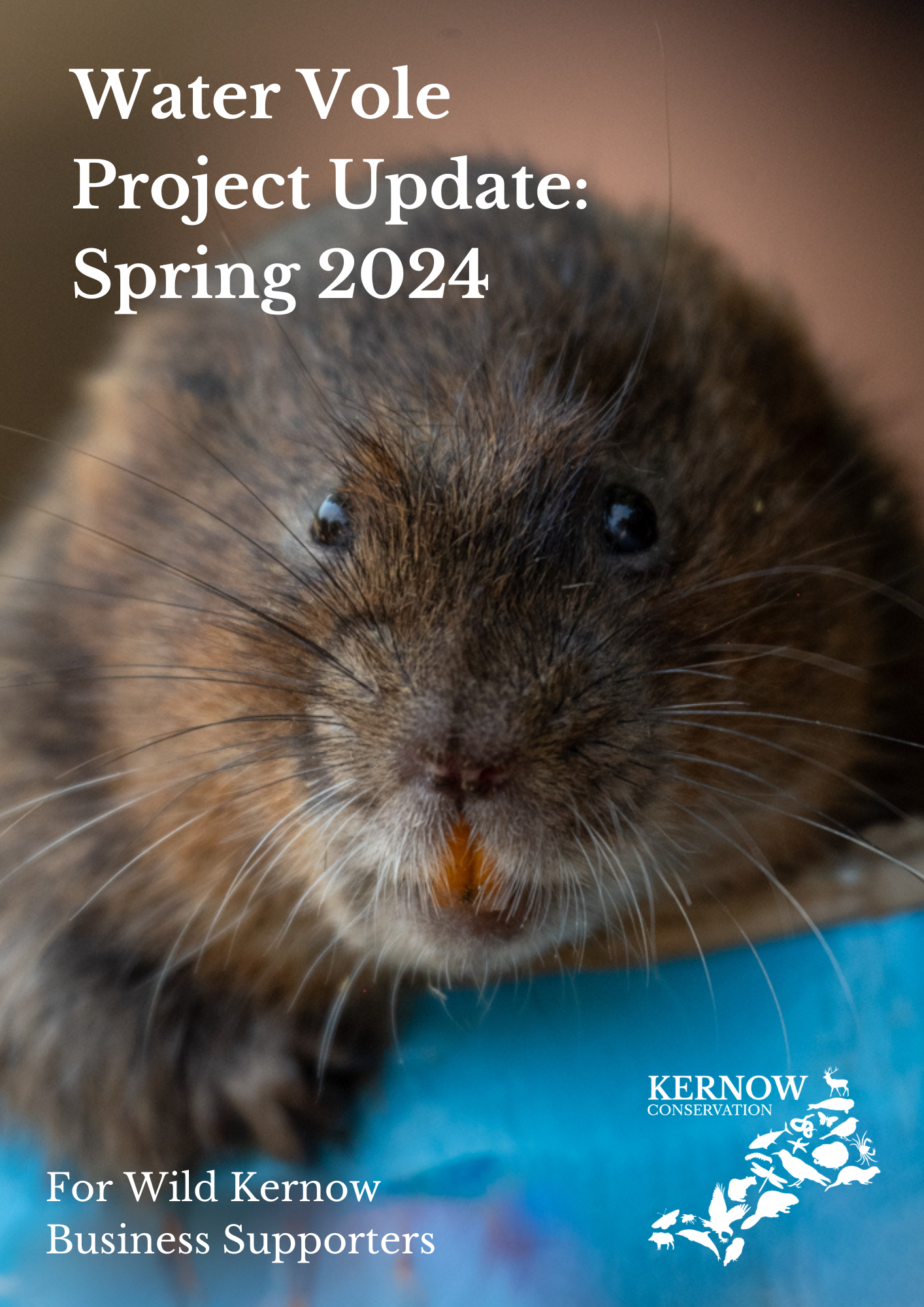Supported by:
Water voles were once common across the whole of the UK but declined due to habitat loss and predation by non-native American mink.
In Cornwall, the water vole became extinct, with its last reported sightings in the 1990s, and did not return until the first reintroductions were made in Bude in 2014.
The water vole is the largest of the UK’s voles, weighing 200-350g as an adult, making them a substantial food source for many native predators, such as barn owls, kestrels, herons and otters.
For water voles, a hard day’s work involves getting out their green fingers to garden the plants around them by grazing on over 227 different species, including rushes, grasses, and berries.
After consuming around 80% of their body weight daily, these ecosystem engineers switch out their gardening gloves for hard hats and dig their burrows into the nearby pond and river banks.
The architecture of these burrows creates a drying effect on the soil and enhances the activity and number of microbes.
Without water voles, wetlands and other water-adjacent areas become less biodiverse habitats with more of the same dominating grass species.
In 2022, with funding from Mossy Earth, we released the first water voles to be seen in south Cornwall in decades at the Trelusback Foundation conservation site near Stithians.
With help from volunteers, we released around a hundred water voles into an area that was carefully monitored and evaluated for suitability.
After a further top-up at the same site the following year, and with funding from Rewilding Europe and our successful Save our Wild Isles Crowdfunder, we used a second release site in the upper Cober catchment to release another hundred water voles.
In June 2024, we used a third release site for our latest batch, which will hopefully bolster the previously reintroduced populations.
In the time since our first reintroductions in 2022, the water voles of the River Kennall have established a remarkable stretch of habitat.
So far we have found evidence of their activity, either in the form of burrows or signs of their grazing, in a zone that stretches from close to the source of the river, all the way to where it becomes tidal, some 8km downstream.
Our work with water voles is far from done.
In all of Cornwall’s more than 130 river valleys, water voles are still only found in a handful of them.
We want to change that.
With funding, we could quickly scale up our water vole monitoring and evaluation work and identify more suitable locations for reintroductions while understanding and managing the threat from invasive nonnative predators.
If you wish to help us by supporting the Water Vole Project, you can donate to our Water Vole appeal or become one of our personal or business members.
For more direct support, engagement and a chance to align your brand at the front of our project and communications, you can sponsor this project as a supporter or headline sponsor. Get in touch to discuss.
Your contribution will play a vital role in our mission.

















